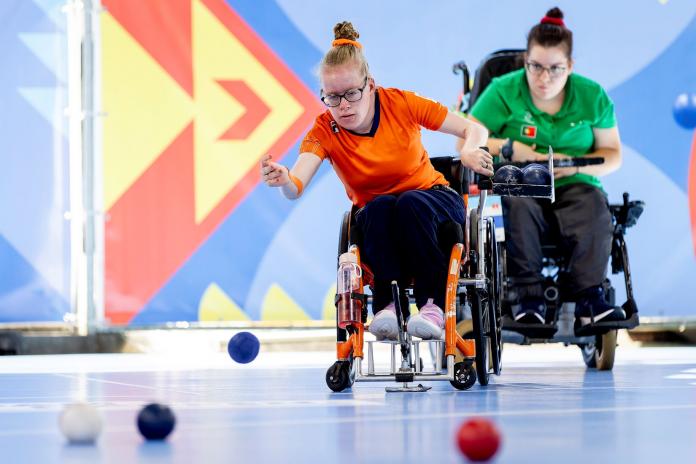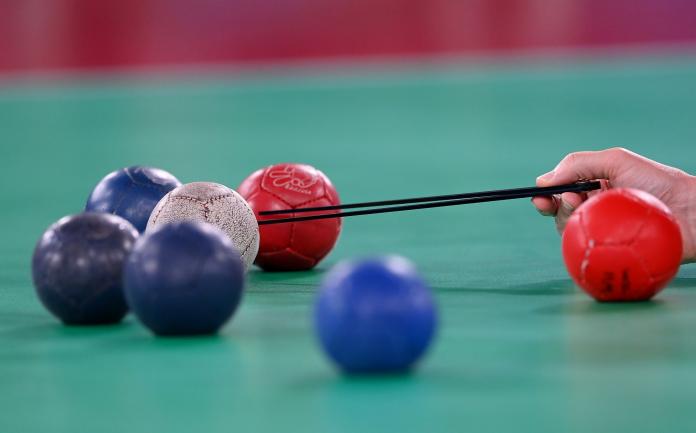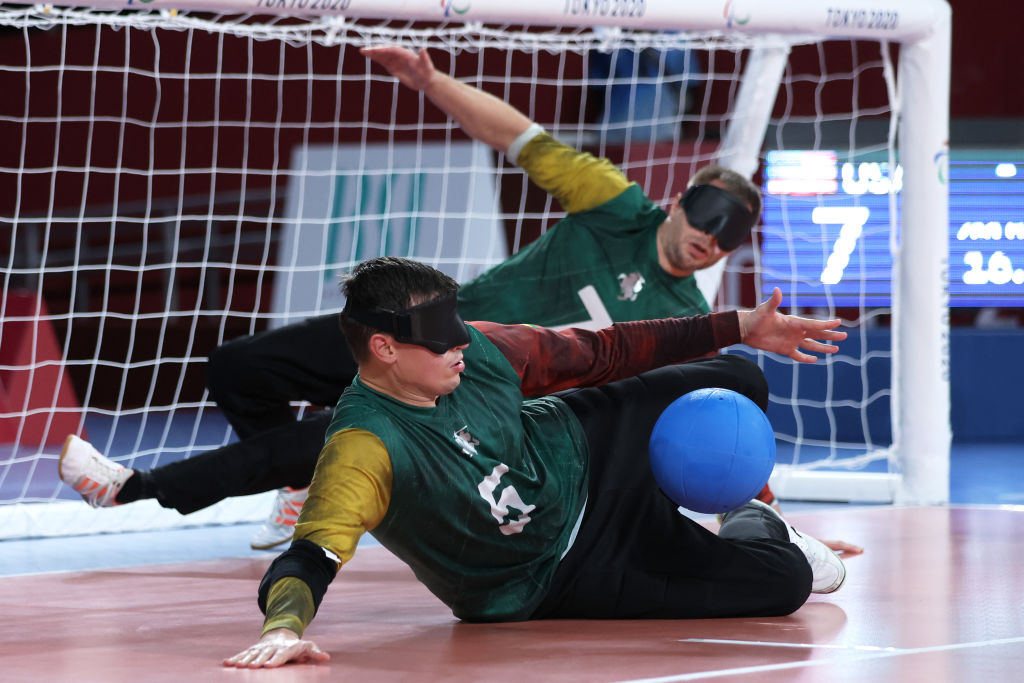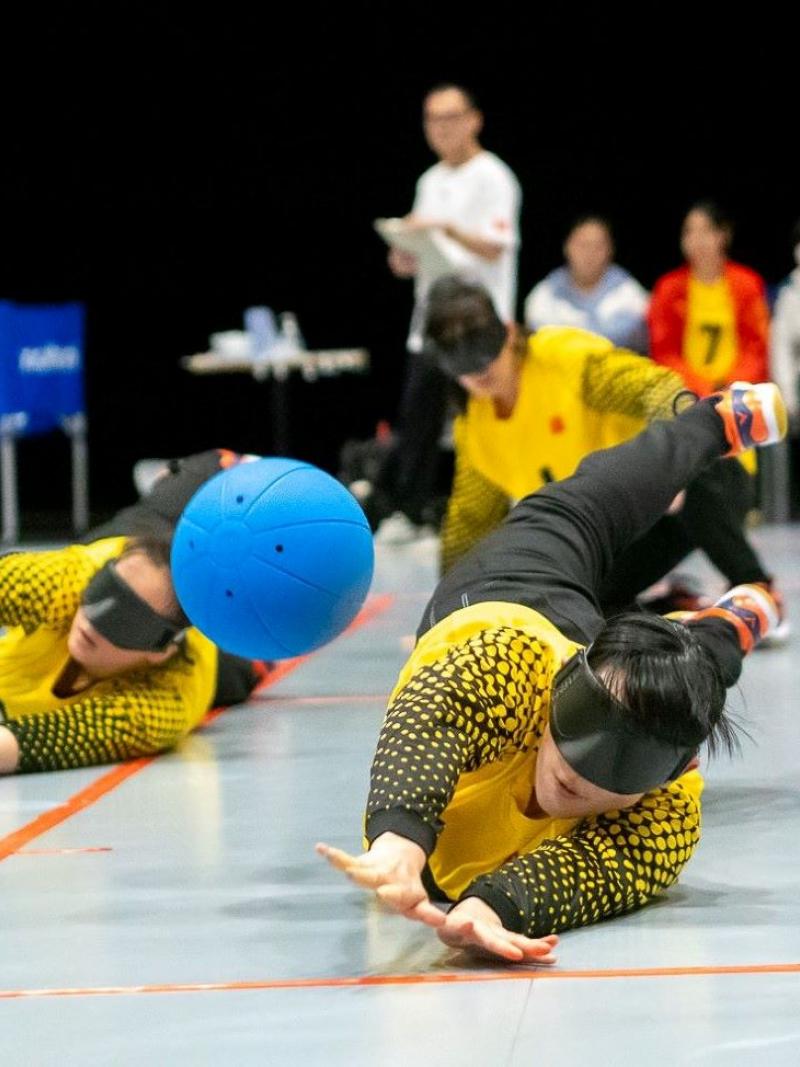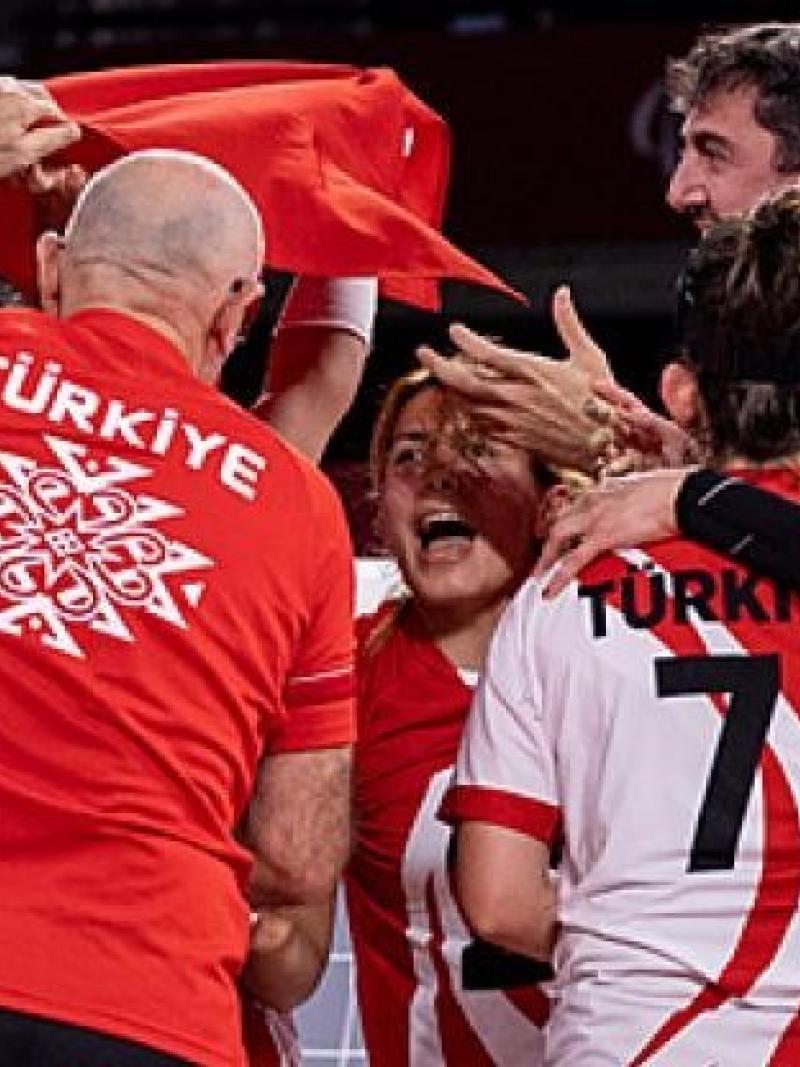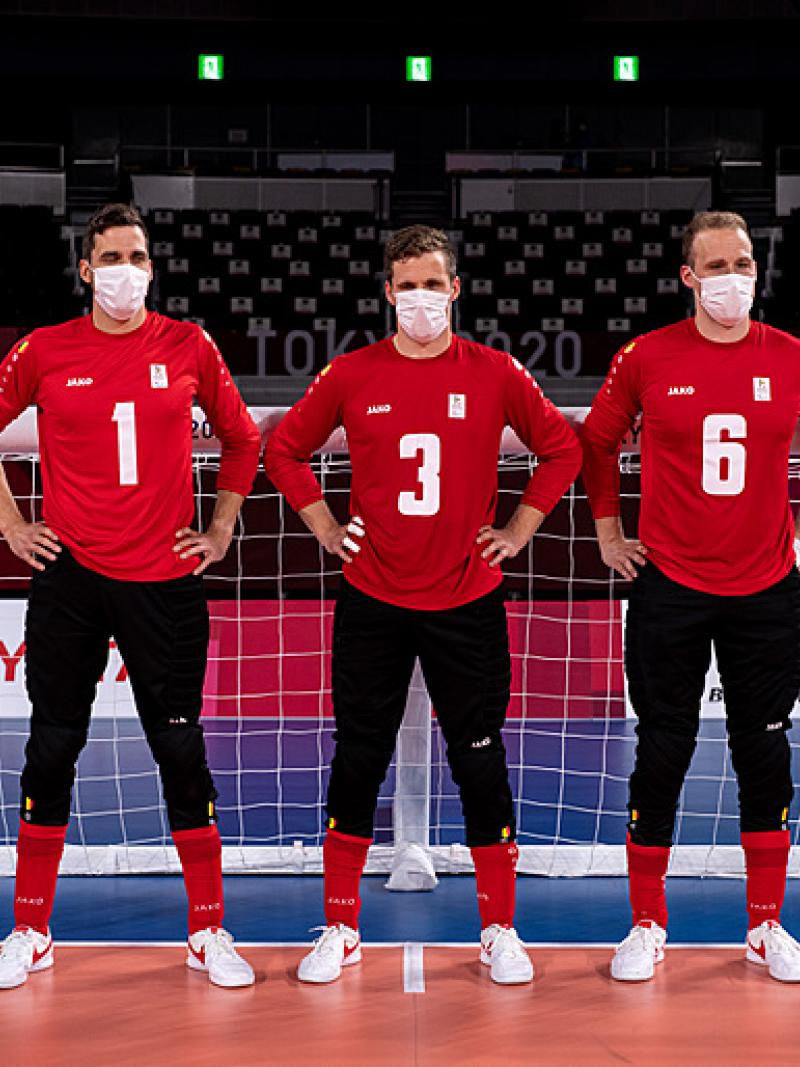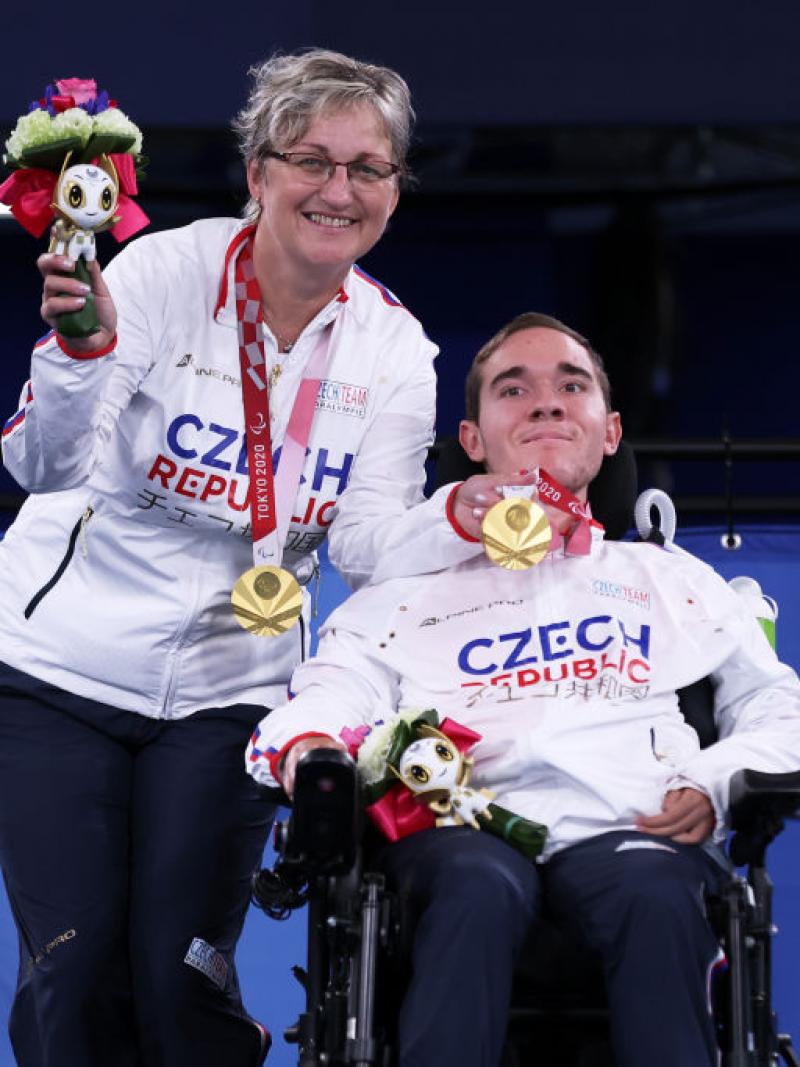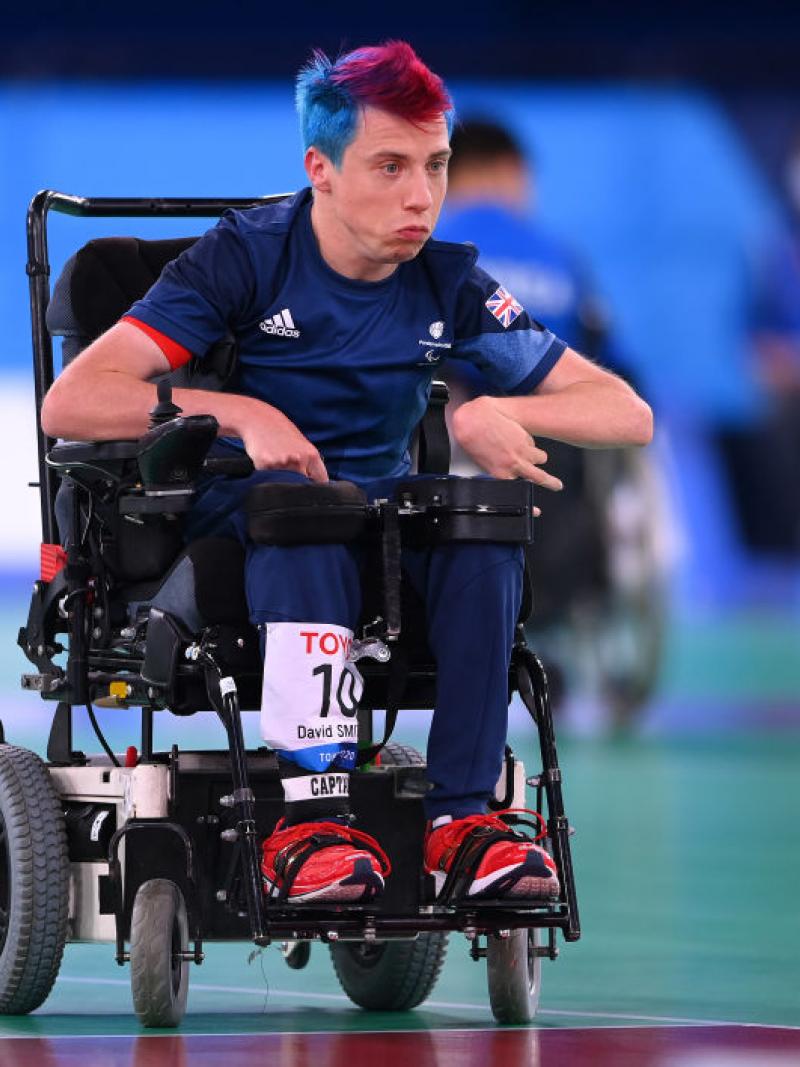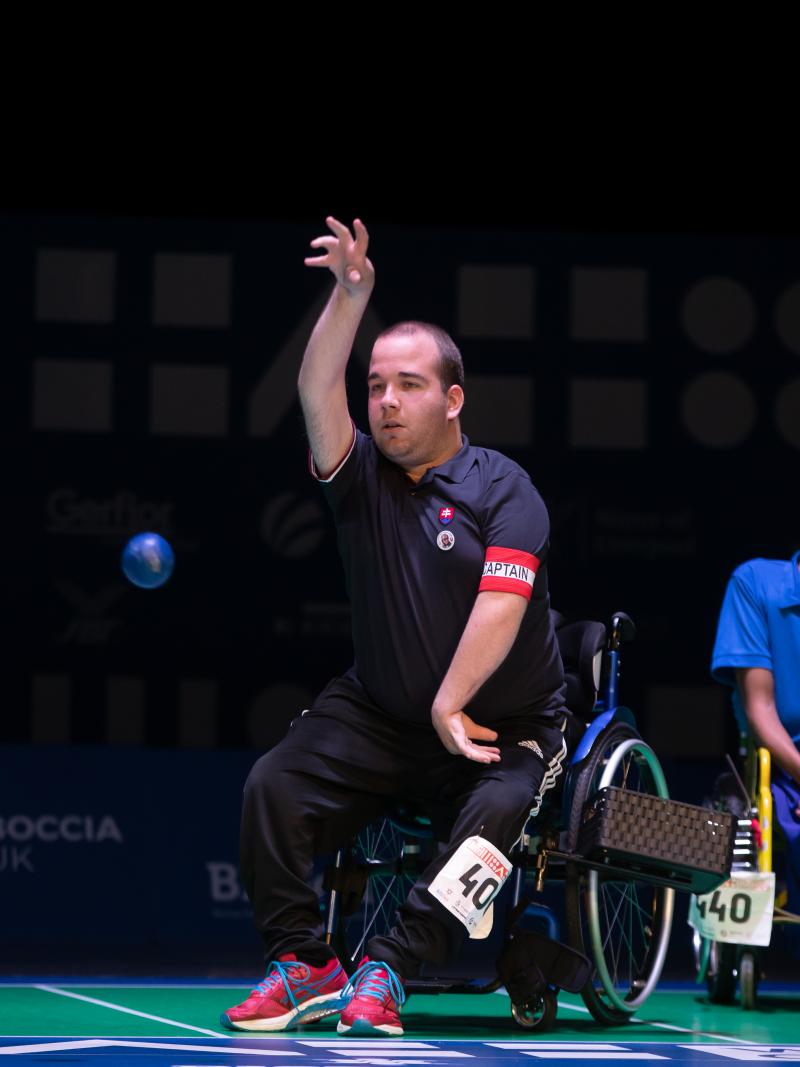Popularity is still on the rise for the only two Paralympic exclusive sports
How boccia and goalball are making their mark within the sporting offer with their agenda of tactics on one side and speed and acrobatics on the other one 15 Dec 2023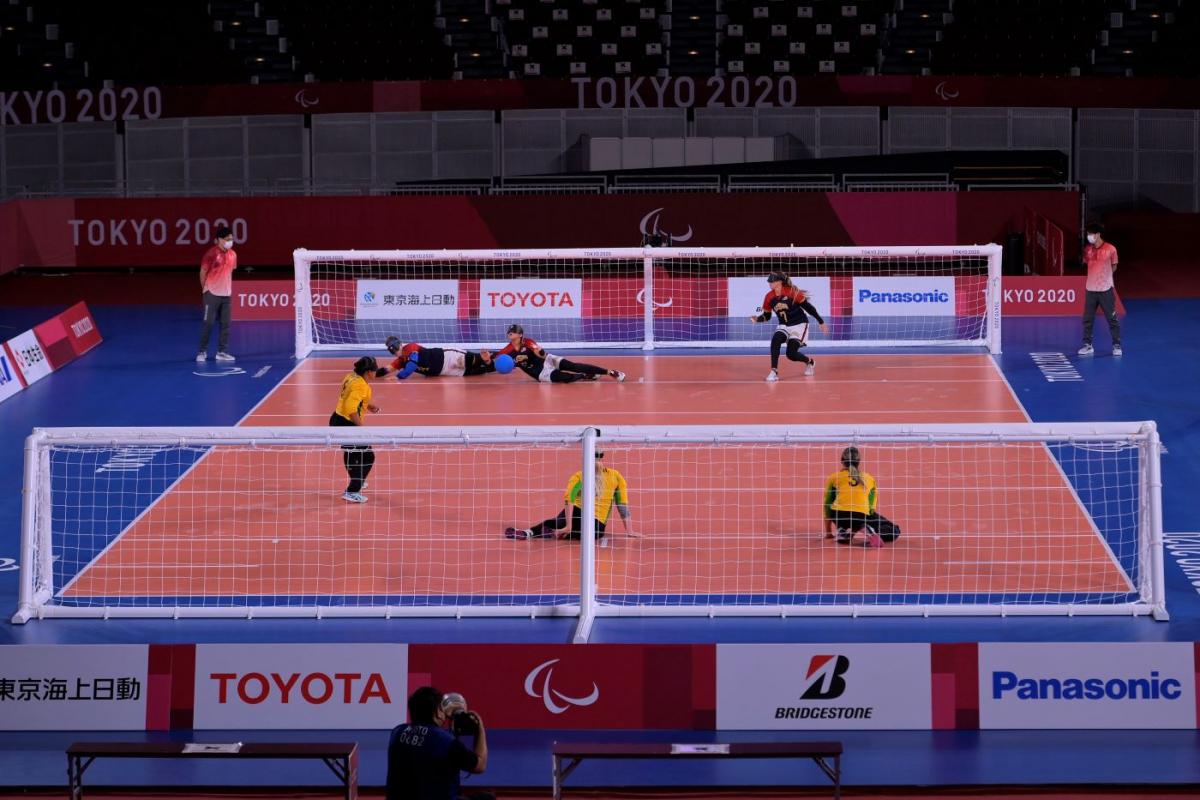
One sport is hundreds, possibly thousands, of years old while the other is a relative newcomer. Nevertheless, they do have one major asset in common – they are the only two sports that make the Paralympic play list with no Olympic Games equivalent. They are boccia and goalball.
According to governing body worldboccia.com, this sport can trace its roots back to ancient Egypt with carvings which show figures throwing stones. Bowls, boules, pétanque – all share similarities with a sport which has gone global in recent decades.
Goalball, meanwhile, was invented in 1946 by Austrian Hanz Lorenzen and German Sepp Reindle, to help in the rehabilitation of soldiers who had been blinded in action.
A sport of intriguing tactics, incredible skill
“The future of boccia will be whatever people make of it. It is everyone's responsibility and if I retire with the sport in a better place, then I know I have done something right. But it's not just medals - it is inspiring the next generation.”
The words belong to the greatest boccia player in British history, three-time Paralympic gold medallist David Smith OBE, who understands that in order to have a past, sport needs to have a future.
Boccia is now the fastest-growing sport within the Paralympic movement and the standards are constantly being raised.
Smith has already written himself a chapter in the history books and is an advocate for a sport which has gone global in recent years.
“I do care about that stuff a little bit. You do want to be recognised,” he said to Paralympic.org after his Tokyo 2020 success.
“Having boccia on the livestream for the first time, I've been able to show what I can do. I think the rest of members this sport have been able to show what they can do.
“It's a great sport and that's quite emotional too; that finally boccia is getting the recognition it deserves.”, he added.
Boccia, Italian for bowl, started as a leisure activity and was included for the first time at New York 1984 Paralympic Games. It is a game of strategy and accuracy, indoors on a badminton-sized court, with leather balls.
It was originally designed to be played by people with cerebral palsy but now includes athletes with impairments that affect motor skills and is played in more than 50 countries, including Singapore where Nurulasyiqah Mohammad Taha made history when she became the first boccia athlete to compete at a Paralympic Games (London 2012).
“I want to see how far boccia can take me. It has taken me on quite a journey so far,” Nurul, who has been playing for 19 years, said to Paralympic.org. “So, who knows, where else can I go with this?”
Speed and acrobatics
Goalball has also been on an upwards trend since featuring at Heidelberg 1972 as a demonstration sport. It was upgraded at Toronto 1976.
Initially only men’s teams played with Austria winning the first Paralympic title after a 4-2 win over West Germany. Denmark took bronze. The women’s medal event was added in 1984 with USA beating Canada.
Imagine trying to fire a 1.25kg heavy ball across a court at just under 37mph while blindfolded. Goalball is a sport of physicality and a test of character.
And there is one outstanding candidate for a place in the record books already.
Turkish player Sevda Altunoluk helped her team win gold medals at Rio 2016 and Tokyo 2020 Paralympic Games. She finished top scorer with an amazing 46 goals after beating USA 9-2.
“This was really important for Turkish blind sports, and many more people will want to feel these emotions,” Turkey team-mate Reyhan Yilmax told Paralympic.org.
“As we win as many gold medals as we can, we can invite more people inside. When they see our victories, they want to be part of this sport and family.”
The recurring theme for both boccia and goalball is that it is ‘different’, developed specifically for para athletes.
“It is what makes the sport special,” says goalballer Pedro Martinez. “Everybody in goalball starts at the same level. It’s not adapted (from the Olympic version of a sport), so you don’t need previous experience or skills.
“When I’m inside the court with eyeshades, I feel totally free without any pressure. I forget everything that is outside of the court.”
Both boccia and goalball will be in the Paris 2024 Paralympic Games menu.
The boccia events will take place between 29 August and 5 September in the South Paris Arena. Medals will be given in the following categories: Individual BC1 (women’s-men’s), BC2 (women’s-men’s), BC3 (women’s-men’s), BC4 (women’s-men’s); Mixed team BC1-2; Mixed pair BC3 and BC4.
Goalball will manage to happen within the same dates and venue, with a men's and women's 8-team tournaments.





